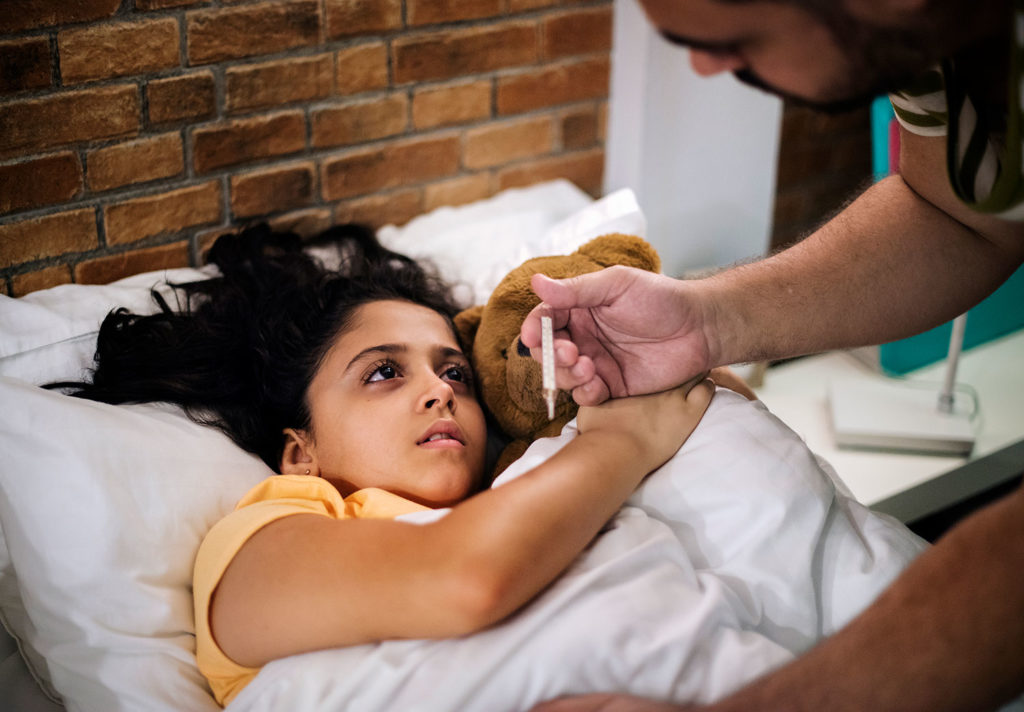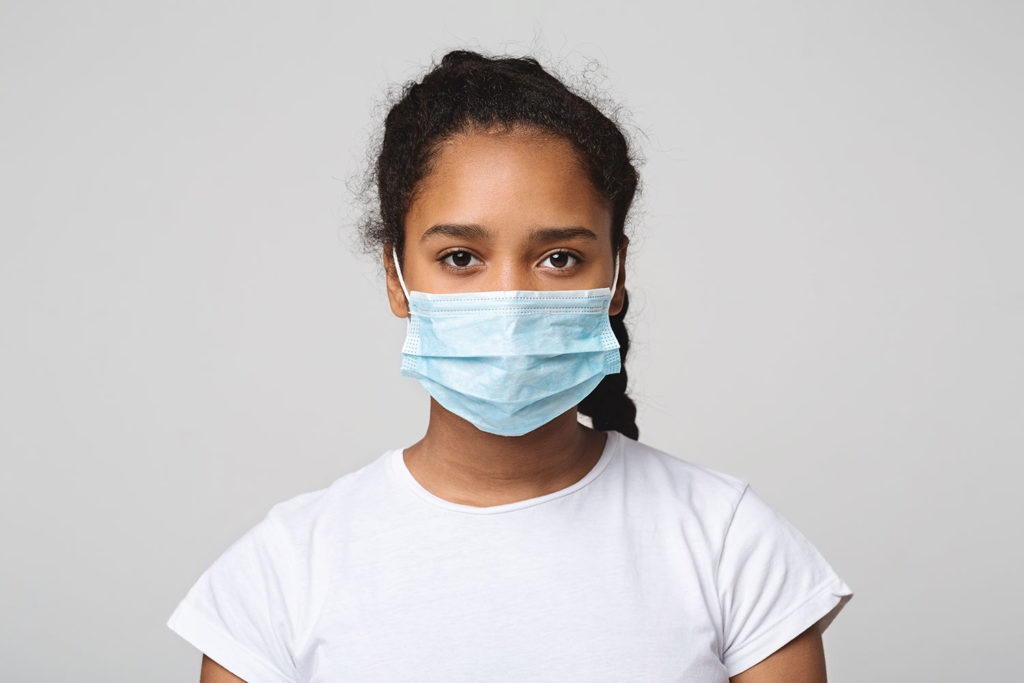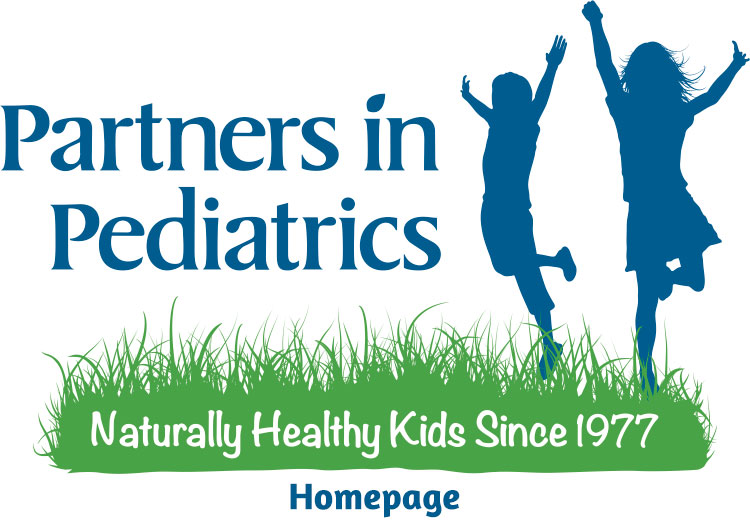Flu season occurs every year in the fall and winter months (primarily December through March). This year is no exception, as evidenced by the number of influenza patients we are seeing in our two Denver metro area offices. The available data from the Centers for Disease Control and Prevention (CDC) indicates that the current flu season has not yet reached the level of an epidemic, and we would love to keep it that way! To that end, we would like to focus on the very important pediatric care topic of the flu and how to (hopefully) prevent it. Many people don’t realize that the flu is a dangerous ailment – according to the CDC, it sadly killed 143 children last flu season. This virus isn’t anything to sneeze at.

What Is the Flu and How Do I Tell If My Child Has It?
As set forth in our Naturally Healthy Kids handbook (available on Amazon as an e-book), influenza (also known as the flu) is a viral infection that affects the nose, throat and lungs. The influenza viruses enter the body through the respiratory tract, primarily the nose and mouth, and immediately invade those membranes. The tissues become inflamed and swollen and then mucous is produced. The virus easily enters the bloodstream and can be circulated throughout the rest of the body, thereby causing the body aches associated with the flu.
The main symptoms are high(>101) fever AND one or more respiratory symptoms (COUGH, sore throat, very runny nose). If your child does NOT have a fever, they probably do not have the flu. Classic FLU symptoms come on fast, within a few hours.
What To Expect When Your Child Has The Flu
How a child will respond to the flu varies, but there are some general guidelines:
- Infants: Flu in an infant can be more severe because babies have difficulty localizing the infection to one location, such as the throat. Sick infants can be restless, eat and drink less, and have significant fever (102-105) and lethargy.
- Older Children and Adolescents: Children in this age group may have very mild symptoms, much like a cold, with low-grade fever (101 to 104 degrees), a dry and hacking cough, headache and muscle aches. With minimal treatment, they usually get better in just 3-6 days.
Most people who get the flu will recover in a few days to less than 2 weeks, but some will develop complications (such as pneumonia, bronchitis, sinus and ear infections, and dehydration), some of which can be life-threatening. Children are considered at high-risk for complications from the flu if they have any of the following:
- Lung disease (such as asthma)
- Heart disease (such as a congenital heart disease)
- Cancer or weak immune system conditions
- Neuromuscular disease (such as muscular dystrophy)
- Diabetes, sickle cell disease, kidney disease or liver disease
- Diseases needing long-term aspirin therapy
- Pregnancy or severe obesity
Furthermore, ALL healthy children under 2 years old are considered to be “high risk”. It is important to mention, that each year there are complications and even deaths in “healthy” individuals – Flu can be unpredictable. It can also spread to your child’s other high risk teachers, relatives, friends.

How Contagious Is The Flu?
There is no doubt that the flu is highly contagious! It is transmitted in the air by a cough or sneeze or in infected oral and nasal secretions from an ill person. An infected person is contagious about 1- 2 days before the onset of symptoms and will continue to be so at least until the fever is gone and other symptoms begin to resolve. It is impossible to know exactly when the virus is gone; however, your child can generally return to school or daycare when the fever has been gone for at least 24 hours (without the use of a fever-reducing medicine) and symptoms are mild enough to resume normal activity. There are many different strains of the influenza virus that can cause the flu. As a result, it is possible to have a flu syndrome more than once in a single season. Unfortunately, having one episode of the flu does not provide protection against another flu-like virus. Each year best efforts are made to predict which strains of flu will cause disease in the US. Most years the predictions are reasonably accurate, but the flu virus can mutate – new strains can arise.
How Do I Protect My Child Against the Flu?
Having read the above, you are probably wondering what steps you can take to prevent the flu from disrupting your and your children’s health this winter and spring! The American Academy of Pediatrics offers the following suggestions:
- Flu Vaccines: The most important thing is for your child to get a flu vaccine every year. Children younger than 6 months are at high risk of serious flu illness, but are too young to be vaccinated. People who care for them should be vaccinated instead in order to protect them. When a pregnant woman is vaccinated, the antibody produced in response to the vaccine also offers protection to the developing baby.
- Distance: Your child should avoid close contact with people who are sick.
- Hand washing: Wash hands often with soap and running water (as long as it takes to sing the “Happy Birthday” song twice). If soap and water are not available, use an alcohol-based hand sanitizer. Help your child wash their hands, if needed.
- Germ control: Encourage your child to avoid touching their eyes, nose, mouth, and to use a tissue or elbow to cough or sneeze into.
- Cleaning: Keep surfaces in the house and toys clean by wiping them down with a household disinfectant according to the directions on the product label.
- Health: If your child has a chronic health condition, make sure that it is under the best control.
As your integrative pediatrician and your medical home in the Mile High City, we strongly recommend that all children 6 months to 23 months of age, and children with underlying issues (such as asthma, diabetes, cystic fibrosis, premature infants and children on oxygen, etc.), receive the flu vaccine yearly. In other children, the flu vaccine is optional and the parent’s choice. In making that choice, please remember that the flu shot is a “killed virus” vaccine and cannot give your child the flu. Only rarely may the flu vaccine cause a mild “flu-like” reaction or low-grade fever for 1 to 2 days following the injection. Most folks simply have a little local soreness at the site of injection.
If you do make the choice to vaccinate your child, it’s not too late for the 2019-2020 flu season! The CDC recommends that everyone age 6 months and older get vaccinated now if they have not already been vaccinated this season. But act fast as it can take up to 2 weeks for full antibody immunity benefit to develop.

When To Call Your Health Care Provider
So the flu has hit your family, despite your best efforts at prevention–now what?
- Low-risk children without complications: If your child is not considered to be at high-risk (see above) and has no complications from the flu, you generally don’t need to see your health care provider. Several of our blogs during the 2018-2019 flu season addressed integrative therapies (herbal remedies, homeopathic remedies, nutritionals and supplements, Bach Flower remedies and dietary guidelines) for treating the flu if you or your children are unfortunate enough to get it. Two of our recent blogs have also addressed the integrated management of children’s respiratory illnesses and the management of coughs, both of which are relevant to the treatment of flu. Our Naturally Healthy Kids handbook has a detailed section on fever and how to deal with it or you can contact us with any questions you may have. In treating a fever, please remember that aspirin should be AVOIDED in all children and adolescents with suspected flu.
- High-risk children or children with severe symptoms: See your doctor promptly if your high-risk child develops flu symptoms. Likewise, call your doctor promptly if your otherwise low-risk child develops a possible complication of the flu. The American Academy of Pediatrics recommends that antiviral drugs (such as Tamiflu) be used to treat the flu in most children in those categories. The drugs must be started within 48 hours when the flu symptoms start; after 48 hours of fever, starting the drug is not very helpful. When used for treatment, antiviral drugs can lessen symptoms and shorten the time your child is sick by 1 or 2 days. They also can prevent serious flu complications, such as pneumonia. Side effects with Tamiflu (nausea, vomiting) have sometimes developed.
In addition, we offer the following guidelines as to when to call your health care provider:
Call immediately if your child:
- becomes progressively restless or agitated in spite of adequate pain management
- becomes progressively more lethargic and difficult to rouse
- complains of a stiff neck, blurred vision, or cannot walk
- exhibits signs of dehydration (no urine in more than 10 hours, dark urine, very dry mouth and no tears)
- coughs up blood
- develops a fever greater than 105.5 degrees
- complains of severe chest or abdominal pain not relieved within an hour
- has shortness of breath or a rapid breathing rate (over 60 breaths per minute in an infant or over 40 breaths per minute in children over the age of 2), especially in the absence of fever
- has significant difficulty breathing and/or croup-like stridor (harsh sound when breathing in) when taking a breath, if a young child or an infant.
Call within 24 hours if:
- an earache develops
- fever lasts more than 4 days or is rising to new highs after 3 days
- difficulty with breathing is gradually worsening
- your child has not been able to return to school for over a week
- your child has a severe sore throat and has been exposed to strep
Call 911 if:
- your child is having severe trouble breathing (struggling for each breath, can barely speak or cry)
- your child’s lips or face are bluish when not coughing OR
- you think your child has a life-threatening emergency

Flu season in Colorado can be a difficult time, and we hope that the above information and tips will help you and your family “weather the storm.” As your integrative pediatric health care provider, we care about all of our patients and are here to help in any way we can!



Leave a Reply